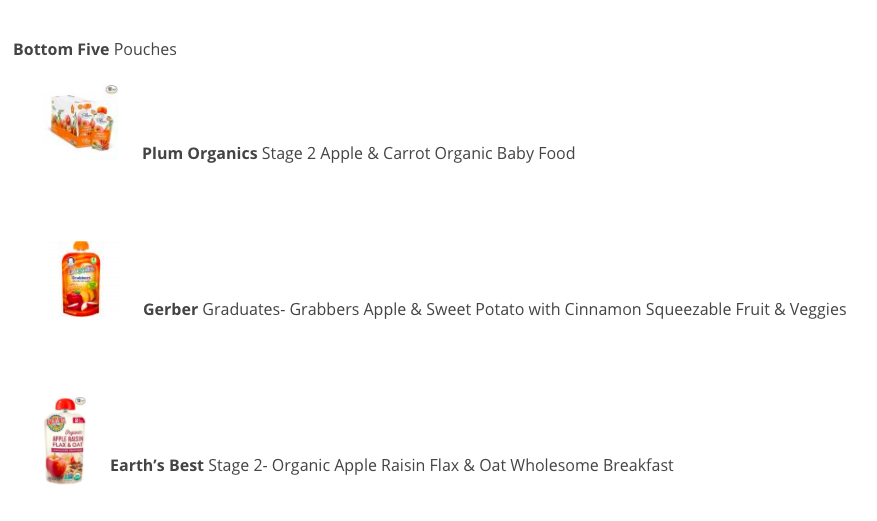When 80% of infant formula tests positive for arsenic, it may be time to re-think the advice that most new parents are given around introduction of solid foods. The American Academy of Pediatrics (AAP) currently recommends that baby’s first foods should be infant rice cereal mixed with breastmilk starting at 6 months of age. Don’t do this!
Infant food introduction can and should start at four months. When choosing first foods, a good guide to follow are the teachings of the Weston A. Price foundation which recommends starting infants on egg yolks, bananas and cod liver oil around 4 months and then moving onto avocados and pureed meats at 6 months. Between 6 and 8 months you add to the growing baby’s diet high pectin fruits, and well-cooked squash, beets and other root vegetables.
Another good rule of thumb for new parents: ditch the juice boxes, squeeze pouches and pre-packaged baby and toddler foods. Being organic means nothing, if you look at the results of the pesticide and toxins screens run by The Clean Label Project on all popular baby food brands, you will see organic choices well represented in the “Bottom Five Pouches” and “Bottom Five Cereals” categories. If you are looking for infant formula, you will find some recommendations on their site, but you must assume any rice product is too contaminated for infant consumption, organic or not.
Naturopathic doctors have very different recommendations regarding infant feeding and nutrition compared to AAP physicians. New parents should consult a licensed healthcare professional, preferable a Naturopathic Doctor, for guidelines to safely introduce solid foods to baby and set them up for a lifetime of proper digestion, immune response and intellectual capacity.
In Health,
Dr. Coleen Murphy ND, LAc.

